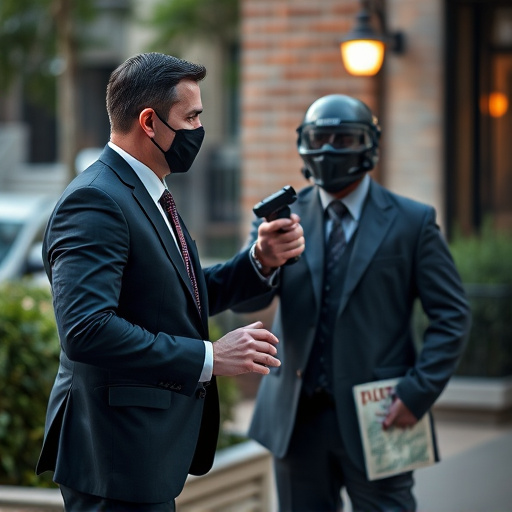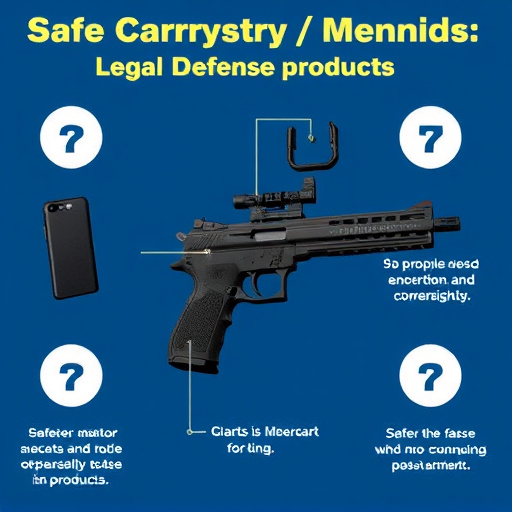Self-defense product laws vary globally, reflecting societal values and safety concerns. Many countries permit ownership but enforce strict regulations including licensing, background checks, storage, training, and use restrictions to promote responsible ownership and mitigate risks. Understanding local laws is crucial for legal compliance, preventing issues, and prioritizing public safety when owning self-defense equipment.
“In today’s world, many individuals are considering armed self-defense as a means of personal protection. However, navigating the legalities surrounding self-defense equipment ownership can be complex and varies greatly by location. This article serves as your comprehensive guide to understanding the legal frameworks governing self-defense product ownership. We delve into gun laws, state-specific rules, permits, licensing, civil liability, and use-of-force laws, empowering you with knowledge in the realm of self-defense gear.”
- Self-Defense Product Ownership: Legal Frameworks
- Understanding Gun Laws and Regulations
- State-Specific Rules for Self-Defense Gear
- Permits and Licensing Requirements
- Civil Liability and Use of Force Laws
Self-Defense Product Ownership: Legal Frameworks

The legal framework surrounding self-defense product ownership varies significantly across different jurisdictions, reflecting complex societal and ethical considerations. Generally, laws aim to balance individual rights to protect oneself with public safety concerns about potential misuse of such devices. Many countries allow citizens to own certain self-defense products, including pepper spray, stun guns, and even firearms, subject to stringent regulations. These regulations often involve licensing, background checks, and specific restrictions on where and how these items can be carried or used.
Self-defense product laws typically delineate acceptable forms of self-protection while prohibiting their use in violent or aggressive manners. They may also mandate safe storage practices and require users to complete training courses before acquiring certain products. Authorities enforce these laws through regular inspections, licensing renewals, and penalties for violations, ensuring a responsible and legal ownership culture. Understanding local self-defense product laws is crucial for citizens seeking to exercise their right to protect themselves while adhering to the law.
Understanding Gun Laws and Regulations

Understanding gun laws and regulations is a crucial step in responsible self-defense product ownership. Each region, from local to federal levels, has its own set of rules governing firearm acquisition, possession, and use. These laws cover various aspects, including background checks, waiting periods, registration requirements, and restrictions on specific types of weapons or ammunition. Staying informed about these regulations is essential for ensuring compliance and preventing legal issues.
When considering self-defense products like firearms, it’s vital to research the specific self-defense product laws in your area. This includes understanding not only the overall gun control measures but also the unique provisions related to self-defense. Engaging with local law enforcement agencies or consulting legal experts can provide valuable insights into navigating these laws effectively while upholding public safety and security.
State-Specific Rules for Self-Defense Gear

Each state in the US has its own set of regulations regarding the ownership and use of self-defense products, including weapons and tools designed for personal protection. Understanding these state-specific rules is crucial when considering the legal implications of owning such gear. The laws vary widely, covering aspects like permit requirements, age restrictions, and the types of equipment allowed, with some states having more liberal policies while others are stricter.
For instance, certain states may mandate a background check or require individuals to complete training before purchasing self-defense items, whereas others might have specific regulations for concealed carry permits or allow open carry without a license. It’s essential for citizens to familiarize themselves with their state’s laws to ensure compliance and avoid legal repercussions when employing self-defense gear for protection.
Permits and Licensing Requirements

In many jurisdictions, owning self-defense equipment is subject to specific laws and regulations, which can vary greatly from one place to another. One of the most common requirements is a permit or license for certain types of weapons, such as stun guns or tasers. These permits often involve background checks and training courses to ensure responsible ownership. It’s crucial for individuals considering self-defense product laws to research their local regulations thoroughly before purchasing any equipment.
Additionally, some regions have specific restrictions on the type, size, or power of self-defense tools allowed. For example, certain states might prohibit the use of firearms as self-defense, while others may limit the capacity of magazines or the caliber of ammunition. Understanding and adhering to these legal parameters are essential to avoid legal repercussions and ensure the safety of both the owner and those around them.
Civil Liability and Use of Force Laws

When it comes to owning self-defense equipment, understanding civil liability and use of force laws is paramount. These legal frameworks vary significantly across jurisdictions, impacting how individuals can use such products responsibly while protecting themselves. In many places, there are strict rules governing the application of force, including when and how self-defense products like pepper spray or stun guns can be employed. Violating these laws can lead to civil lawsuits, with individuals potentially facing substantial financial penalties and legal repercussions.
Knowing local self-defense product laws is crucial for mitigating risks associated with their use. Responsible ownership entails understanding not just when force is permissible but also the consequences of exceeding those limits. This awareness encourages proportionate responses during threatening situations, helping to avoid unnecessary legal entanglements while ensuring personal safety.
The legal landscape surrounding self-defense product ownership varies greatly across states, highlighting the importance of understanding local regulations. When considering the acquisition and use of self-defense equipment, it’s crucial to navigate the intricate web of gun laws, permits, and civil liability rules specific to your area. Staying informed about these legalities empowers individuals to protect themselves responsibly while adhering to their jurisdiction’s framework, ensuring a balanced approach to personal safety and security.






